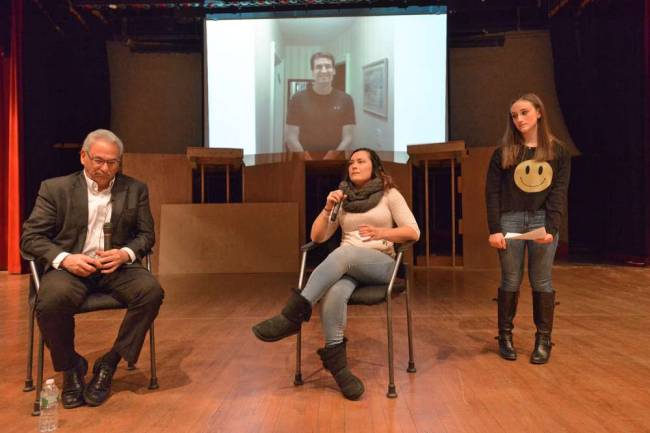The Record, February 9, 2015
WITH NEW legislation aimed at preventing both prescription drug abuse and drug overdoses, state leaders are readily acknowledging what many people in North Jersey have known for a while: There is a significant heroin problem in suburbia.
As The Record reported Friday, the state Attorney General’s Office notes a 160 percent increase in heroin-related deaths from 2010 to 2013. Officials say that when people get hooked on painkillers, many turn to heroin as a cheaper alternative.
Approximately 80 deaths were attributed to heroin in Bergen County in 2014. Efforts have been made over the last few years to bring this issue out of the shadows, and they continue today. There are multiple fronts to be attacked — involving prevention and awareness campaigns — to end this epidemic.
Police departments work to stop the delivery and distribution of drugs, while emergency responders try to resuscitate overdose victims with heroin antidotes. But with more awareness, leaders are hoping also to prevent people from ever becoming drug addicts.
The Record has been chronicling how even Bergen and Passaic counties’ most affluent communities have seen heroin overdoses within their borders. In addition to the deaths, police blotters list arrests of addicts who rob businesses or individuals so they can get money to buy more drugs.
The push to raise awareness of the dangers and warning signs of drug abuse, in the hope of deterring future drug users, has been prominent on the local level. A 14-year old student at Northern Highlands Regional High School in Allendale started putting on substance-abuse awareness programs at her school two years ago after “Glee” start Corey Monteith died of a heroin overdose. She held a program last week featuring a 22-year-old former addict who has been sober for 19 months and a man whose 25-year-old son died of an overdose.
The former addict needed to hit rock bottom, with her mother finally turning her back on her, before she found the strength to enter recovery. “It hist hit me right in the face,” she said. “I don’t think any of us think that where we’re going to end up.”
Many heroin addicts get started by abusing prescription medicine they find in their homes. Sometimes it belongs to their parents. Sometimes, as in the case of the son of the man who spoke at the Allendale program, it starts with a prescription drug like oxycodone after a surgery, then becomes a problem.
The bipartisan legislation passed last week aims to fight that. The bills would establish a secure place to dispose of unused prescription drugs and household medications, while also requiring pharmacists and doctors to tell patients about the proper disposal methods for drugs. If teens can’t get these types of drugs as easily, there’s a smaller chance for them to begin down that dark road.
Governor Christie signed bills into law last week that expand the state’s Overdose Prevention Act. It allows emergency responders and needle-exchange workers to give the antidotes to someone who has overdosed on heroin without worrying about legal liability.
“By doing so, we will have an even greater ability to save lives, reverse the effects of overdose and prevent tragedies with this life-saving treatment,” Christie said.
It has take years for the heroin epidemic to grow; it will take time to conquer it. Efforts must be stepped up to help people already affected, while also keeping others from becoming addicted.
Read the full editorial in The Record
